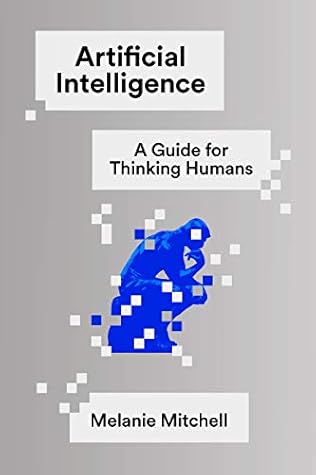More on this book
Community
Kindle Notes & Highlights
Started reading
September 11, 2024
Hofstadter went on.2 He described how, when he first started working on AI in the 1970s, it was an exciting prospect but seemed so far from being realized that there was no “danger on the horizon, no sense of it actually happening.” Creating machines with humanlike intelligence was a profound intellectual adventure, a long-term research project whose fruition, it had been said, lay at least “one hundred Nobel prizes away.”
Hofstadter continued, Music is a language of emotions, and until programs have emotions as complex as ours, there is no way a program will write anything beautiful. There can be “forgeries”—shallow imitations of the syntax of earlier music—but despite what one might think at first, there is much more to musical expression than can be captured in syntactic rules.… To think … that we might soon be able to command a preprogrammed mass-produced mail-order twenty-dollar desk-model “music box” to bring forth from its sterile circuitry pieces which Chopin or Bach might have written had they lived
...more
Back at our Google meeting, Hofstadter spoke with extraordinary emotion about his encounters with EMI: I sat down at my piano and I played one of EMI’s mazurkas “in the style of Chopin.” It didn’t sound exactly like Chopin, but it sounded enough like Chopin, and like coherent music, that I just felt deeply troubled. Ever since I was a child, music has thrilled me and moved me to the very core. And every piece that I love feels like it’s a direct message from the emotional heart of the human being who composed it. It feels like it is giving me access to their innermost soul. And it feels like
...more
In the Google conference room, Hofstadter paused, peering into our faces. No one said a word. At last he went on. “I was terrified by EMI. Terrified. I hated it, and was extremely threatened by it. It was threatening to destroy what I most cherished about humanity. I think EMI was the most quintessential example of the fears that I have about artificial intelligence.”
Hofstadter ended his talk with a direct reference to the very Google engineers in that room, all listening intently: “I find it very scary, very troubling, very sad, and I find it terrible, horrifying, bizarre, baffling, bewildering, that people are rushing ahead blindly and deliriously in creating these things.”
Hofstadter’s terror was in response to something entirely different. It was not about AI becoming too smart, too invasive, too malicious, or even too useful. Instead, he was terrified that intelligence, creativity, emotions, and maybe even consciousness itself would be too easy to produce—that what he valued most in humanity would end up being nothing more than a “bag of tricks,” that a superficial set of brute-force algorithms could explain the human spirit.
As GEB made abundantly clear, Hofstadter firmly believes that the mind and all its characteristics emerge wholly from the physical substrate of the brain and the rest of the body, along with the body’s interaction with the physical world. There is nothing immaterial or incorporeal lurking there. The issue that worries him is really one of complexity. He fears that AI might show us that the human qualities we most value are disappointingly simple to mechanize. As Hofstadter explained to me after the meeting, here referring to Chopin, Bach, and other paragons of humanity, “If such minds of
...more
My own view had been that AI had progressed a lot in some narrow areas but was still nowhere close to having the broad, general intelligence of humans, and it would not get there in a century, let alone thirty years. And I had thought that people who believed otherwise were vastly underestimating the complexity of human intelligence.
I had read Kurzweil’s books and had found them largely ridiculous. However, listening to all the comments at the meeting, from people I respected and admired, forced me to critically examine my own views. While assuming that these AI researchers underestimated humans, had I in turn underestimated the power and promise of current-day AI?
The entrepreneur and activist Mitchell Kapor advised, “Human intelligence is a marvelous, subtle, and poorly understood phenomenon. There is no danger of duplicating it anytime soon.”
In short, what I found is that the field of AI is in turmoil. Either a huge amount of progress has been made, or almost none at all. Either we are within spitting distance of “true” AI, or it is centuries away. AI will solve all our problems, put us all out of a job, destroy the human race, or cheapen our humanity. It’s either a noble quest or “summoning the demon.”


